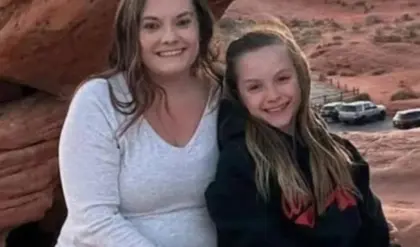
Jodie Foster is on point. Mere minutes into conversation and she’s talking politics, specifically as they pertain to “Money Monster,” a timely thriller she has directed that takes place within the vortex of economic insecurity now decimating the middle class.
It’s impossible to watch “Money Monster,” which stars George Clooney and Julia Roberts and opens Friday, and not be reminded of the indeterminate rage of the Trump phenomenon. But, Foster is quick to point out, “we have somebody for every voter. Bernie Sanders is in there, too!”
The last time Foster did press for a movie was five years ago, when she directed Mel Gibson in the quirky emotional drama “The Beaver” and serenely navigated a media maelstrom brought on by the actor’s latest notorious outburst. Now 53, she hasn’t visibly aged in half a decade, her hair showing just a few strands of gray and her face betraying no signs of Hollywood-mandated “work.”
She still speaks quietly, just above a whisper. Famously private, Foster is nonetheless direct and surprisingly forthcoming about even the most intimate subjects, whether they have to do with her mother, the movie industry or her public persona.
It’s difficult for most people to wrap their heads around the profound strangeness of growing up in the public eye – Foster has been in the entertainment business since she was a toddler – as the client of one of show business’s most well-known “momagers” and the flashpoint for some of America’s most violent collisions of politics and pop culture.
The adjectives that leap to mind to describe Jodie Foster – genuine, down-to-earth, authentic, real – would be unremarkable were it not for how fiercely she’s fought to establish and protect those qualities, against forces that have militated against them all her life.
One need only consider an exceptionally painful chapter to appreciate Foster’s struggle when, during her freshman year at Yale – when she was supposed to be enjoying a hard-won period of young adulthood in relative anonymity – a man who had been stalking her attempted to assassinate President Ronald Reagan. That’s just the most anguishing example of an existence defined by a private life that Foster has guarded with single-minded determination and a public version of herself she still has trouble comfortably inhabiting.
“I see George and Julia and I’m like, Oh my God they’re really good at that,” Foster says of the glad-handing, glib small talk and feigned intimacies of the fame game. “And I’m getting worse and worse!”
That’s not entirely true. She’s eager to talk about “Money Monster,” in which Clooney plays Lee Gates, the swaggering, superficial star of a cable financial show who’s taken hostage by a young man, played by Jack O’Connell, whose savings have been wiped out by one of Gates’ stock tips. Roberts plays Gates’ director, Patty, whom Foster calls the host’s “Jiminy Cricket” and “the hero he can’t be.” In addition to being a “Speed”-like thriller, “Money Monster” is about a form of male shame, at its most wounding and unspoken.
“I’m not sure everyone realized that when they made the movie, (but) I did,” Foster says. “It’s really about men … who have a poor opinion of themselves and are looking for value, looking for meaning. … Most of it is about failure in the reflection of the women they love, the strong women they want to be (of value to).
“It is gender-specific and yet, weirdo that I am, I feel like I had that relationship with my mother,” she continues, referring to O’Connell’s character. “I had to be the guy that was valuable. I needed to see that reflected back in her eyes. And any times that I didn’t measure up somehow, I felt like I was a failure. … And yet I’m also Patty, the one who’s a caretaker who multitasks in order to produce somebody’s survival. And (I’m) Lee, the performer who’s caught up in his own persona, doesn’t know who he is, and is completely lost and self-absorbed.”
Foster credits her mother, Evelyn, with instilling the impeccable standards she displayed when choosing material, even at a young age. She consistently turned down chances to join the Brat Pack, or to be the ingenue or love interest in generic rom-coms, in favor of scripts that were smart, layered and edgy.
“Meaningless, meaningful?” Foster recalls, describing the question she would ask of every project that came her way. Usually the answer was the former. “I had to keep going, ‘No, no, no, I don’t want to be that, I don’t want to be that, I don’t want to be that.’ I kept choosing a meaningful life.”
For Foster, that meant aspiring to substantive work and a semblance of normalcy, despite the coddling, manipulation and exploitation – her word – that she endured. “I was a child actress, so I had to fight to be real,” she says now. “I had to say, ‘No, I want to take the subway,’ or ‘I want to go to a food store’ or ‘I’m going to make my own dinner.’ I wanted to be independent. I wanted my life to feel real.”
Foster admits that “Money Monster” and her work for Netflix – she recently directed episodes of “House of Cards” and “Orange Is the New Black” – represent a new level of engagement with the outside world and its issues. “I’m more interested in relevant topics,” she says. But Foster’s form of activism will never extend past the screen.
“I’m grateful for the spokesmen who are out there, because they’ve helped change the world and change my life,” she says, “and it’s really important and necessary for history and for change. I do it my own way. I make movies.”


